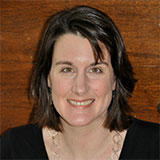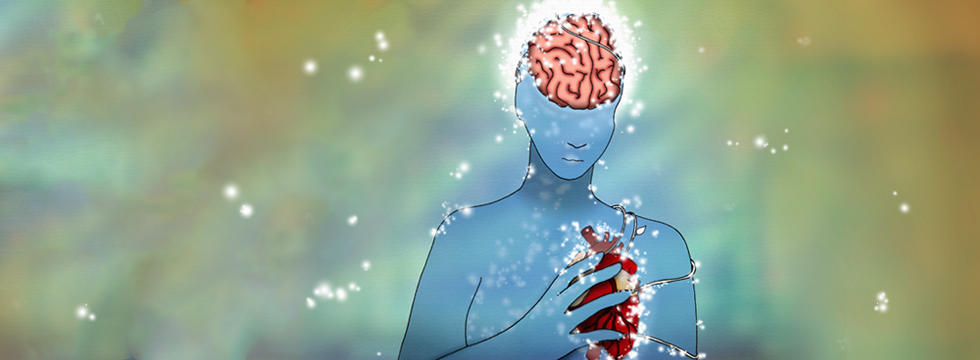We asked women across disciplines what International Women’s Day means to them.
Catherine Pound - Faculty of Medicine
Now more than ever, we must stand strong, empower and support each other. Together, we can make a difference.
Today’s world is filled with possibilities. Many areas of the world have seen advances in the cause of women and girls, yet, much remains to be done. In a professional workforce still male-dominated, in the era of #metoo, and at a time where women march to combat the misogyny and counterculture that simmers below the surface of our society, in a world where women want it all; career, family life, personal life… the struggle to succeed while achieving balance is real.
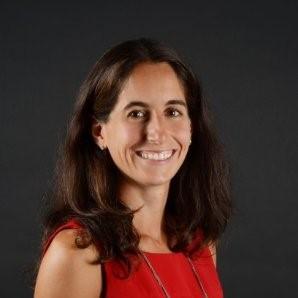
Betty Baba - Faculty of Social Sciences
International women’s day provides an opportunity to observe and analyze the changes that have taken place and those that are yet to be achieved. We need a society where all women and girls can live free from violence.
A world where girls can go to school without the fear of being kidnapped, a safe environment where domestic violence will no longer be perpetuated, and women and girls are not systematically raped during times of instability and war. Despite, the progress made in transforming women’s life there are still disparity between women and men.
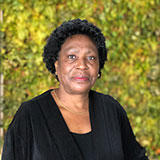
Joanne St. Lewis - Faculty of Law
Being a Black feminist law professor offers me a privileged position from which to speak. This platform allows me to challenge any complacency that suggests we have arrived.
Instead, racialized women continue to face barriers and struggles that reflect the compounded inequalities of our lives. We stand in solidarity with feminist struggles for equality in the workplace, accountability for sexual violence and meaningful representation at all levels of governance. However, our path to policy engagement is bloody. We despair when we realize that it take often takes a dead Black body to catalyze a meaningful discussion of the inadequacies of the criminal justice system. Being a Black woman is about absence. The snapshot of the senior administration of universities, the appellate levels of court, corporate leadership and our governments rarely contain our image. The burden is very heavy on the few racialized women who have transgressed these barriers. Hope lies in the critical mass of young feminists from diverse communities who are ready to stand up and be counted.
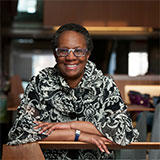
Barbara Orser - Telfer School of Management
March 8th is a day of recognition and responsibility – recognition of what has come before and responsibility to continue to challenge the status quo.
I am privileged to hold a professorship in a Canadian university. International Women’s Day reminds me that this is a privilege that cannot be taken for granted. Historically, most women, women such as my grandmother Eva Orser, could never aspire to such a position. I am privileged because so many have struggled to create opportunities for me. I am privileged because others confronted academic sexism and paid the price of being marginalized because of gender identity. Today, I work in an institution that supports my research on women entrepreneurs, and the role of gender on enterprise development. This research is reflected in my teaching. Recently, through the Canadian Bureau of International Education, colleagues and I helped to construct gender-inclusive entrepreneurship curricula in Jordan. Our team is effecting change for girls and boys, men and women in the Middle East.
March 8th is a day of recognition and responsibility – recognition of what has come before and responsibility to continue to challenge the status quo. For me, this relates to my research, teaching, and industry engagement. History has privileged boys and men, often compromising the rights and opportunities of girls and women. March 8th is a day to remember the lessons of history, to recognize predecessors, and to celebrate their accomplishments.
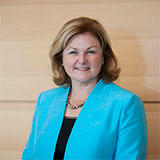
Rukhsana Ahmed - Faculty of Arts
I am excited about the new possibilities and opportunities that my predecessors, unfortunately, did not have and fought for.
For me, being a female professor in 2018 is like occupying a liminal organizational space and place of betwixt and between. I am excited about the new possibilities and opportunities that my predecessors, unfortunately, did not have and fought for.At the same time, I do recognize the sexism and bullying we are still fighting. Notwithstanding, I am acutely aware of how these experiences have fostered resiliency in me, and I look forward to paying it forward for my successors.
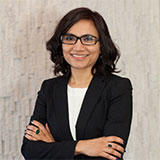
Nadia Abu-Zahra - Faculty of Social Sciences
In 2018 I think about what I want as a woman, for myself and others, and the answer is safety, justice and freedom.
I also think about what I don’t want, and the answer is for others to be wronged – to lose their safety, justice or freedom – in my name or in the name of others. I want all who struggle with abusive relationships to be enabled to protect themselves and their loved ones from financial, psychological/emotional, physical, sexual, verbal, spiritual, environmental abuse, as well as cyberbullying, stalking, social isolation, direct manipulation and manipulation of their children.

Jennifer Quaid - Faculty of Law, Civil Law Section
March 8th is a reminder that all of us have a role to play in advancing equality and the role of women in society. As a researcher and an educator, my hope is to instill in a new generation of women – and men – a commitment to this goal and a willingness to tackle the many challenges that lie ahead.
What does it mean to be a woman in 2018? Personally, I have had the great fortune to be born at a time and in a place where women and girls are valued and where there is considerable recognition of the important contributions they can and do make to Canadian society. Though it is not perfect, I studied and now teach in an education system where women excel and achieve great things, be it as students, professors or members of the staff. As a legal academic, I have a privileged position – one in which I can engage in meaningful research in a field where critique of the status quo is expected and welcomed as part of a larger process of striving to make the law as fair and just as possible for all. This being said, as much as there have been significant advancements in achieving equality between men and women in my lifetime, there is no escaping the reality that it is still very much a work in progress.
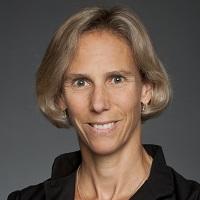
Catherine Mavriplis - Faculty of Engineering
As the NSERC Chair for Women in Science and Engineering I am encouraged every day by the enthusiastic and creative ways in which women contribute to science and engineering at school and at work as well as in leadership and entrepreneurship in general.
At times, I'm disheartened that in 2018 women still have to worry about their personal health, mental and economic safety on a daily basis; but I am also extremely grateful for the opportunities that have been given to us to thrive in public life.
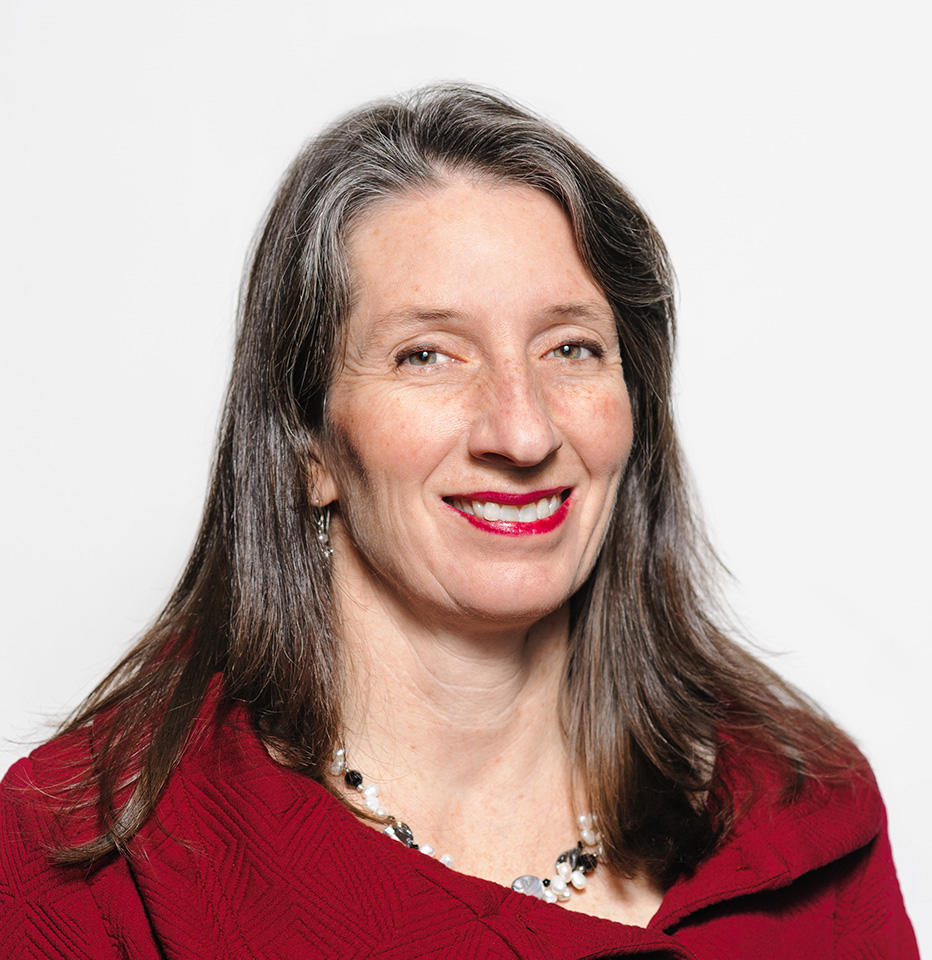
Monique Frize - Faculty of Engineering
Things will improve if women and men in this field work together to implement strategies to reach this goal.
The participation of women in engineering study programs has grown in the 1980s until 2002, when it regressed for nearly a decade. Numbers picked up a little in the last ten years with an average enrolment of around 20%. But in the profession, many women leave after 5-8 years, often because of the culture of the organizations or because younger men get the promotions women feel entitled to have themselves. There is some progress on many levels, but gender balance in engineering is not on the radar screen at this time.
Things will improve if women and men in this field work together to implement strategies to reach this goal. These strategies have been clearly identified for quite some time (around 20 years and reviewed as recently as 2011). It will need commitment and a belief from all stakeholders that the profession, employers, and engineers themselves will benefit from the changes.
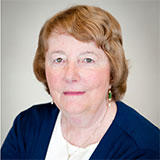
Tracy Vaillancourt - Faculty of Education
We need more women in positions of power and their inclusion needs to be beyond tokenism. This is important because girls and women cannot be what they cannot see.
There has been a lot of progress made in academia concerning the inclusion of women from when I started out as a graduate student 20 years ago. One great thing about being in the Faculty of Education is the representation of women in governance and at the faculty level. Although I am inspired by this level of representation, we have still not achieved gender parity.
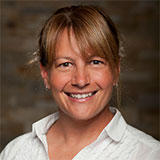
Monica Nevins - Faculty of Science
Women are essential to modern science. The greater diversity of today’s scientific community translates into a greater depth and breadth of scientific research.
We should be in awe of the scientific breakthroughs of the last half-century, and recognize that it arises from the impressive growth of the scientific community, fuelled by including women and other formerly underrepresented groups. The greater diversity of today’s scientific community translates into a greater depth and breadth of scientific research.
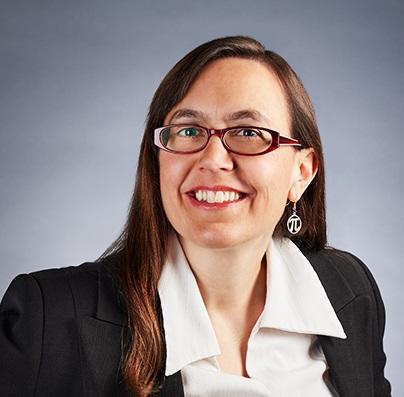
Marie-Claude Audet - Faculty of Health Sciences
To be a woman in science in 2018 is to have the opportunity to believe in one's dreams, to go forward and take the place that belongs to us.
I have been personally fortunate to have been supervised by outstanding female and male mentors who have always encouraged me and pushed for success during my career. Unfortunately, while have been made in recent decades, the fact remains that women are underrepresented in the Canadian and international scientific community. We must continue our efforts to promote science to girls and women and, more importantly, to increase their access to science programs and to encourage them in their endeavors.

Nadine Wiper-Bergeron - Faculty of Medicine
A woman in 2018 is in constant juxtaposition. She has more opportunity and a greater voice than ever, yet acknowledges the remaining challenges in the workplace, the barriers that prevent her progression, that collar her ambition, and fill her with doubt that she needs the corner office.
A woman in 2018 is bombarded by images of beauty, cataloguing the lines, spots, scars and folds that form her landscape while wanting to be recognized for her leadership, her creativity, her intelligence and her drive. She wants it all and cries under the weight of her life. She cultivates independence and craves community. A woman in 2018 is a fulcrum. She should choose what she wishes to balance carefully.
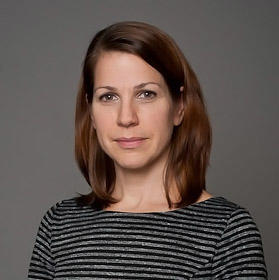
Angela Cameron - Faculty of Law
Working everyday with inspiring people who face these challenges reminds me of what we have left to change, and fight for. That ALL women will benefit equally from Canada’s Constitutional guarantee of substantive equality.
In many ways being a middle-aged, white, upper middle class, well-educated woman lawyer is a great gig in 2018. The fact that I am a lesbian often passes unseen, my privilege frequently intact. I receive excellent pay to do work that I care about in a unionised environment, and my powerful knowledge as a lawyer allows me to navigate unscathed many situations that might otherwise trigger sexist experiences for women. If you take me and my experience as the norm, things are looking pretty good.
My experience, however, only serves to heighten the inequality faced by so many women whose social location is different from mine. It shines a light on the ways in which various kinds of privilege effectively interlock to insulate some of us from racism, ableism, ageism, sexism and homophobia, while so many women live these on a daily basis.
I am made painfully aware of what being a woman in 2018 COULD look like by learning from my students. I learn from women graduating from professional school with a law degree and massive debt who, we know (are facing sexism in their profession- from wage gaps, to harassment by clients and colleagues, to barriers to building families. I learn from racialized and Indigenous women lawyers who face the interlocking barriers of racism and sexism in the legal profession and queer lawyers setting off on a career where they will have to navigate homophobia, transphobia and other forms of queer exclusion.
